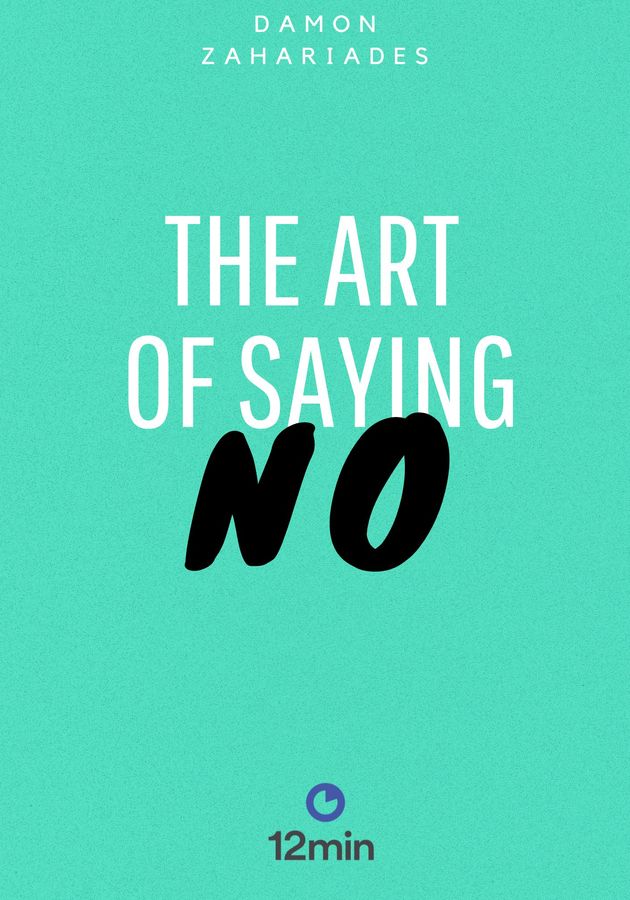For most of history, the only way for social scientists to understand people better was by asking them. Not obvious at first glance, the problem with this approach is that people tend to lie – and they tend to lie quite liberally to surveys.
Fortunately, the Internet Age has provided scientists with an amazing alternative: Big Data. More precisely – the things you type on your keyboard when you’re alone. In “Everybody Lies,” Seth Stephens-Davidowitz examines what Google searches can tell us about our nature – and why we should take them even more seriously in the future.
So, get ready to discover the truth about our sex lives and political beliefs – and find out how bad humans are at handling this truth!
Middle-class ballers: your intuition vs. Big Data
In June 2013, soon after winning his second NBA championship, LeBron James said in a televised interview that, being a poor child from Akron, Ohio, the odds were always stacked against him. Social media couldn’t disagree more: if there ever was someone naturally gifted to become a supreme athlete, LeBron must have been that someone. And his upbringing? Well, aren’t most basketball stars born in utter poverty in the projects and raised by a single, teenage mom? And doesn’t it make sense? Suburban kids play for the fun of it. Inner-city kids must look at basketball as a matter of life or death.
Until 30 years ago, checking this kind of statement against factual data would have been difficult. While data was there, it just wasn’t possible to compile and process it, let alone do this fast. Nowadays,not only there is an incredible amount of relevant information available around, but even regular computers can deal with it in a reasonable amount of time. Just think of all those specialized websites – such as basketball-reference.com and ancestry.com – or all of the data points gathered every ten years in the U.S. census!
Stephens-Davidowitz fed a machine with all of these – and then some – and discovered that conventional wisdom is not only off beam, but also dead wrong: two-parent, middle-class families produce far more NBA stars than single-parent, poor families. LeBron was right: the NBA is not composed primarily of men who share his background, but of men raised by two middle-class parents in urban areas, like Chris Bosh or Chris Paul. Data says that even their names testify to this fact: kids from difficult homes in the projects are much more likely to be given unique names, such as LeBron or DeMar or Dwyane – while common names, such as Chris or Kevin or Russell, are given to kids from better-off backgrounds.
Big Data: our era’s most revolutionary tool
Think of some of your intellectual heroes from the past – be they poets, philosophers, sociologists, psychologists, or cultural theoreticians. Now, think about how their most important ideas came to be. Whether we’re talking about Shakespeare, Nietzsche, Marx, Freud, or Foucault, the process couldn’t have been much different than intuitively noticing something about human nature, and then trying to generalize it, backing it up with data only if necessary.
The problem? As we discovered in the basketball example above, neither intuition nor small subsets of data are warranties for truth. Quite the opposite: they tend to produce factoids. No wonder noted statistician and philosopher Nassim Nicholas Taleb remarked once that “it is contagion that determines the fate of a theory in social science, and not its validity.” Stephens-Davidowitz believes that things are finally about to change. “At the risk of sounding grandiose,” he comments, “I have come to believe that the new data increasingly available in our digital age will radically expand our understanding of humankind. [...] It may be our era’s microscope or telescope – making possible important, even revolutionary insights.”
And how can it not be? On average, human beings generate 2.5 million trillion bytes of data daily! And every one of these bytes is a different clue to their behavior. More importantly, they are all relevant clues. Even though we habitually lie to surveys and instinctively hide our embarrassing interests from other people, we tell everything to sites such as Google and Pornhub. And yet, the vast majority of modern social scientists tend to rely on traditional survey datasets. But shouldn’t it be evident by now that, for example, “the widespread use of porn – and the search and views data that comes with it – is the most important development in our ability to understand human sexuality” in the history of mankind? Freud would have drooled over this kind of data. And, for some reason, we don’t.
The four powers of Big Data
No matter how much of it there is, data doesn’t automatically generate insights by itself. Fortunately, Big Data is not only about size. It’s also about its four unique attributes:
- It offers new types of data. Pornhub offers plenty of information about people’s sexual preferences. Google about just about anything. Numerous other websites specialized in handling different types of data can give us “windows into areas about which we could previously just guess.”
- It is honest. Some of the data you share with search engines is information that you would never admit to anybody. In a way, websites such as Google and Pornhub function as a sort of “digital truth serum.” “Big Data allows us to finally see what people really want and really do, not what they say they want and say they do,” notes Stephens-Davidowitz.
- It allows us to zoom in on small subsets. Even the largest surveys are exclusive; Big Data is not. And because there is so much of it coming from just about everyone on this planet, there is meaningful information on even the tiniest slices of the population. We can compare outrageous things, such as, say, the number of people who dream of cucumbers versus those who dream of tomatoes.
- It allows us to do many causal experiments. Big Data is not only about correlations – it is about causality as well. It is far easier and cheaper to conduct an A/B test with Big Data. And you can even go meta in an instant!
All in all, the potential of Big Data is boundless. If we use it wisely, it might lead us to an entirely new “look at human beings – their behaviors, their desires, their natures.” In fact, it already has.
Some truths about sex
The General Social Survey is considered “one of the most influential and authoritative sources for information on Americans’ behaviors.” And according to this survey, heterosexual women say that they have sex once a week on average and that their partners use a condom once every six lovemaking sessions. This adds up to about 1.1 billion condoms used per year. Heterosexual men, on the other hand, say that they use 1.6 billion condoms every year. The numbers don’t add up – they are supposed to be the same. So, who’s lying?
Big Data says both – though men somewhat more than women. Namely, only about half a billion condoms are sold every year. But, then again, our Google searches can’t hide this fact. For example, searches for “sexless marriage” are three and a half times more common than searches for “unhappy marriage” and eight times more common than those for “loveless marriage.” And searches for “sexless relationship” are second only to searches for “abusive relationship” among unmarried couples.
You want to hear something even more surprising: even though men exaggerate much more than women about how much they are having sex, Google says that “there are twice as many complaints that a boyfriend won’t have sex than that a girlfriend won’t have sex.” Blame that on insecurity: believe it or not, one of the most common questions men ask Google is how big their penis is! The biggest bodily insecurity for women is even stranger: the odor of their reproductive organs.
Moving on to homosexuality. Sexologist Alfred Kinsey famously hypothesized that 1 in 10 American males is gay. According to representative surveys, the number fluctuates between 2% and 3% of the male population. Big Data says the actual number is somewhere in between – based on relevant Google searches, about 5% of American men are probably gay. Compare this to the results of the surveys and you realize a startling fact: on every two American gays, one is afraid to publicly declare his sexual preferences! That’s somewhat scary.
Handling the truth (and a few more truths about your friends)
If Google is a “digital truth serum,” Facebook is a “digital brag-to-my-friends-about-how-good-my-life-is serum.” Unlike Google searches, Facebook is not anonymous – and, according to Stephens-Davidowitz, it might be a little more than a compendium of great pretenders.
Consider this fascinating fact: on their Facebook profiles, roughly 1.5 million people like or discuss articles from The Atlantic – a respected, highbrow monthly magazine. Conversely, only about 50,000 like or discuss the contents of the gossipy and sensationalistic National Enquirer. In circulation, however, there is roughly one Atlantic for every National Enquirer. Just as importantly – the numbers of respective Google searches confirm this ratio.
A comparison between our Facebook habits and our Google searches can reveal why some people think political correctness has gone off the rails, while others claim that racism and sexism are pretty prevalent. You see, as much as social media might be contaminated with hypermorality, under Google’s cloak of anonymity, most people are still not beyond searching things such as “kill Muslims” or the N-word in all kinds of rude contexts. Believe it or not, one in every five Google searches about Muslims relates to hate, and the N-word is consistently googled with the same frequency as common words such as “migraine” and “economist” – rap songs excluded!
Turning over to gender politics, parents are almost three times more likely to ask Google if their son is gifted than they are to ask the same question about their daughters. And this, even though, at a young age, girls have consistently been shown to be more intelligent than boys. In other words, at least to some extent, the majority of Americans are not only racist and sexist but also very much aware of this. And since they won’t confess this fact to anyone but themselves, they overcompensate – and thus, they nevertheless fuel an atmosphere of divides, discords, and disagreements.
Final Notes
Described as “‘Freakonomics’ on steroids,” “Everybody Lies” is an endlessly fascinating and incredibly revealing book.
“Time and again my preconceptions about my country and my species were turned upside-down by Stephens-Davidowitz’s discoveries,” writes Steven Pinker in the foreword, one of the most influential intellectuals of our present age. “This book is about a whole new way of studying the mind,” he adds, and “presents an unprecedented peek into people’s psyches.”
And, indeed, at times, “Everybody Lies” feels as soul-piercing as an owl’s stare. And just as wise.
12min Tip
Don’t trust Facebook: the lives and relationships of your friends are probably no better than yours. They just want to make you believe otherwise.




























